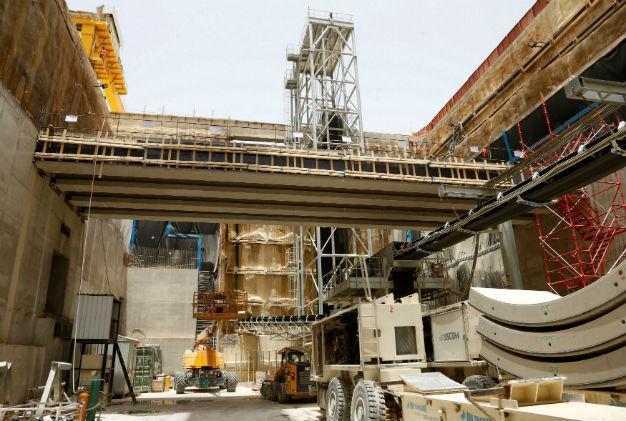Riyadh's $22.5 bn Metro project on track: Governor
RIYADH - Agence France-Presse

REUTERS photo
A $22.5 billion urban rail and bus system for the congested Saudi Arabian capital is on track, the city's governor said on May 4, as other projects in the kingdom are delayed.
"No, no, it's OK," Prince Faisal bin Bandar told reporters.
"The project is going very well" and according to plan, he said on the sidelines of a ceremony to mark the end of digging part of the underground railway tunnel.
Construction on the Riyadh Metro began in late 2013 and is targeted for completion by the end of 2018, much more quickly than similar projects in other countries.
It is the biggest infrastructure project in the history of the Saudi capital.
Work on the Metro intensified just before the oil revenues on which Saudi Arabia depends began to drop sharply.
The collapse in global crude prices by more than half since mid-2014 left the world's biggest oil producer with a record budget deficit last year and a projected shortfall of $87 billion this year.
As a result, the government imposed unprecedented subsidy cuts on fuel, electricity and water. It delayed some major projects and held up receipts to contractors.
Last week, Deputy Crown Prince Mohammed bin Salman released the wide-ranging Vision 2030 plan to diversify the economy away from oil.
It calls for "high quality" public transport to help improve the quality of urban life.
Three foreign consortiums are building the Metro, with France's Alstom, Canada's Bombardier and Germany's Siemens among the major participants.
The Metro's six lines will cover 176 kilometres (109 miles), supported by a bus network of 1,150 kilometres.
About 40 percent of the system will be underground.
Work on the above-ground elevated railway is noticeable throughout the sprawling city of 5.7 million, where concrete supports and railway platforms are going up, forcing motorists into constant detours.
